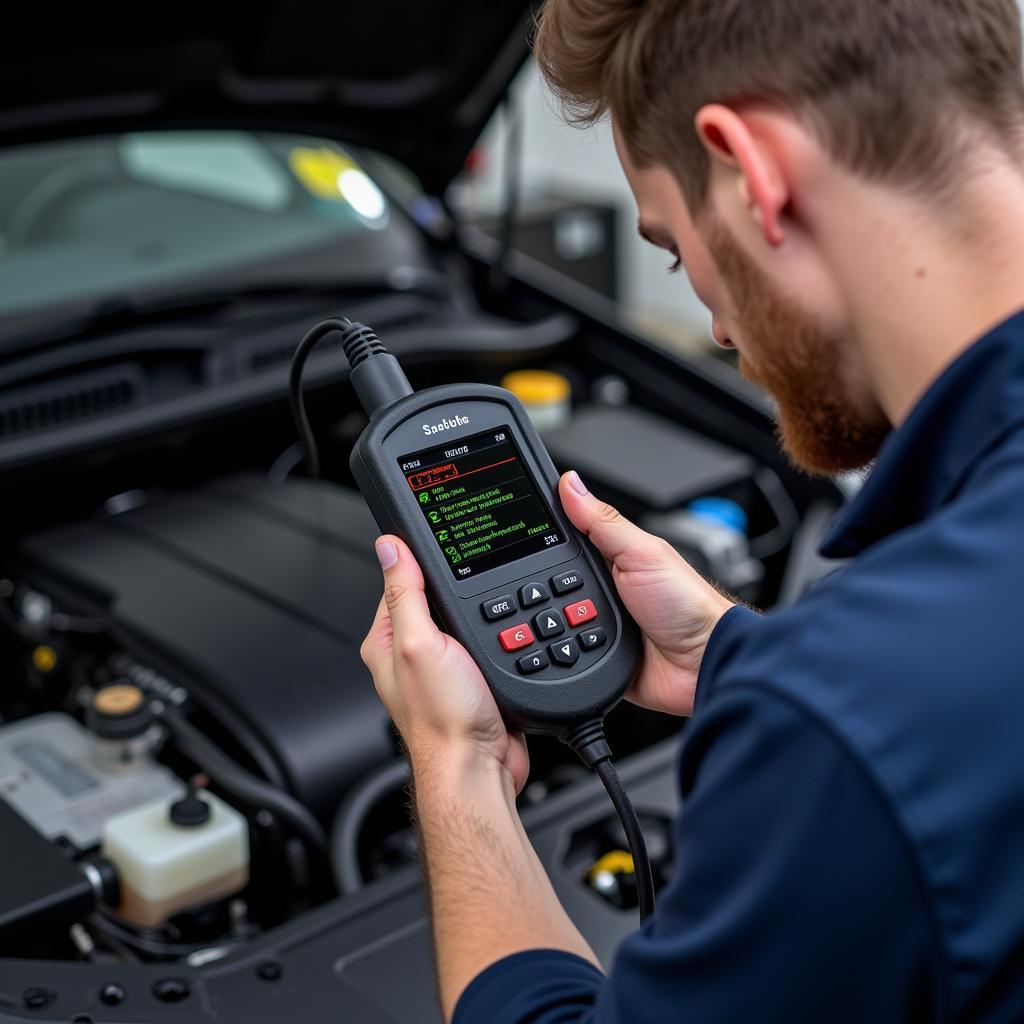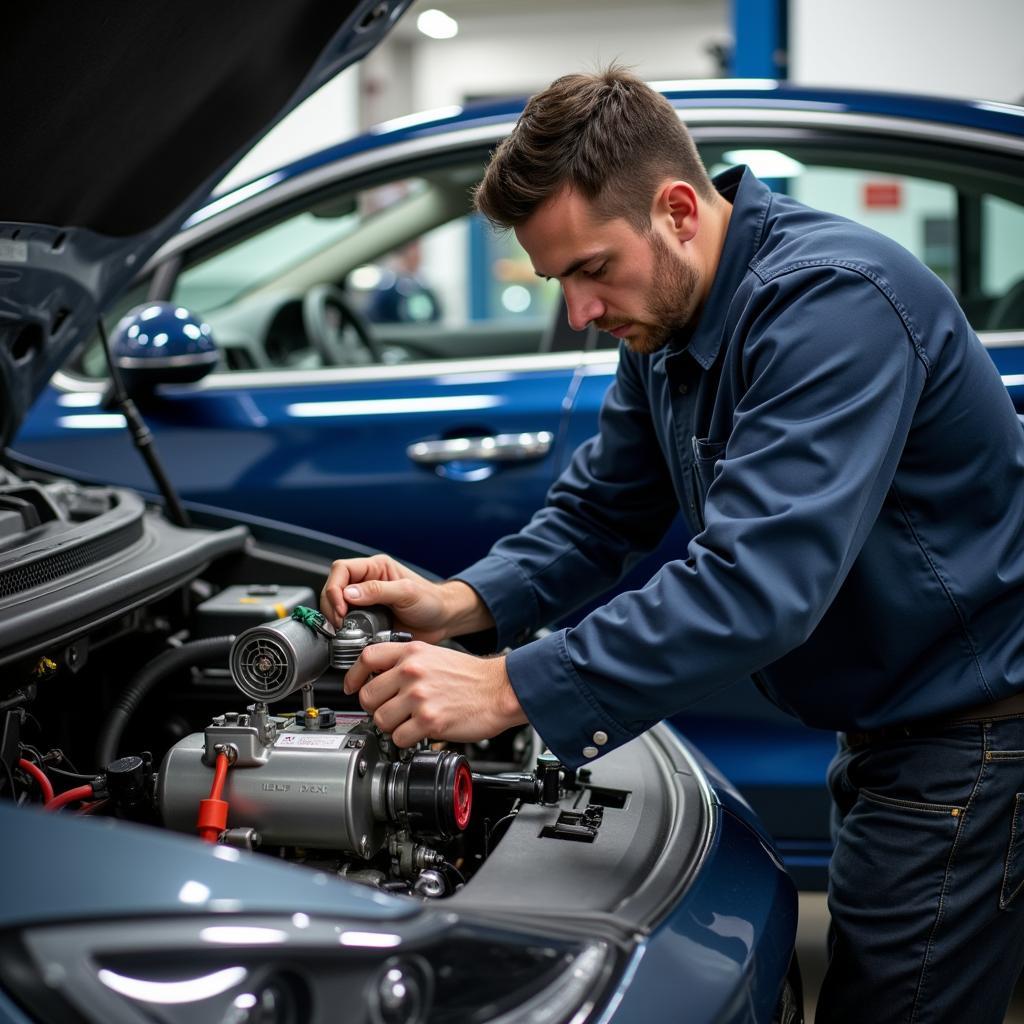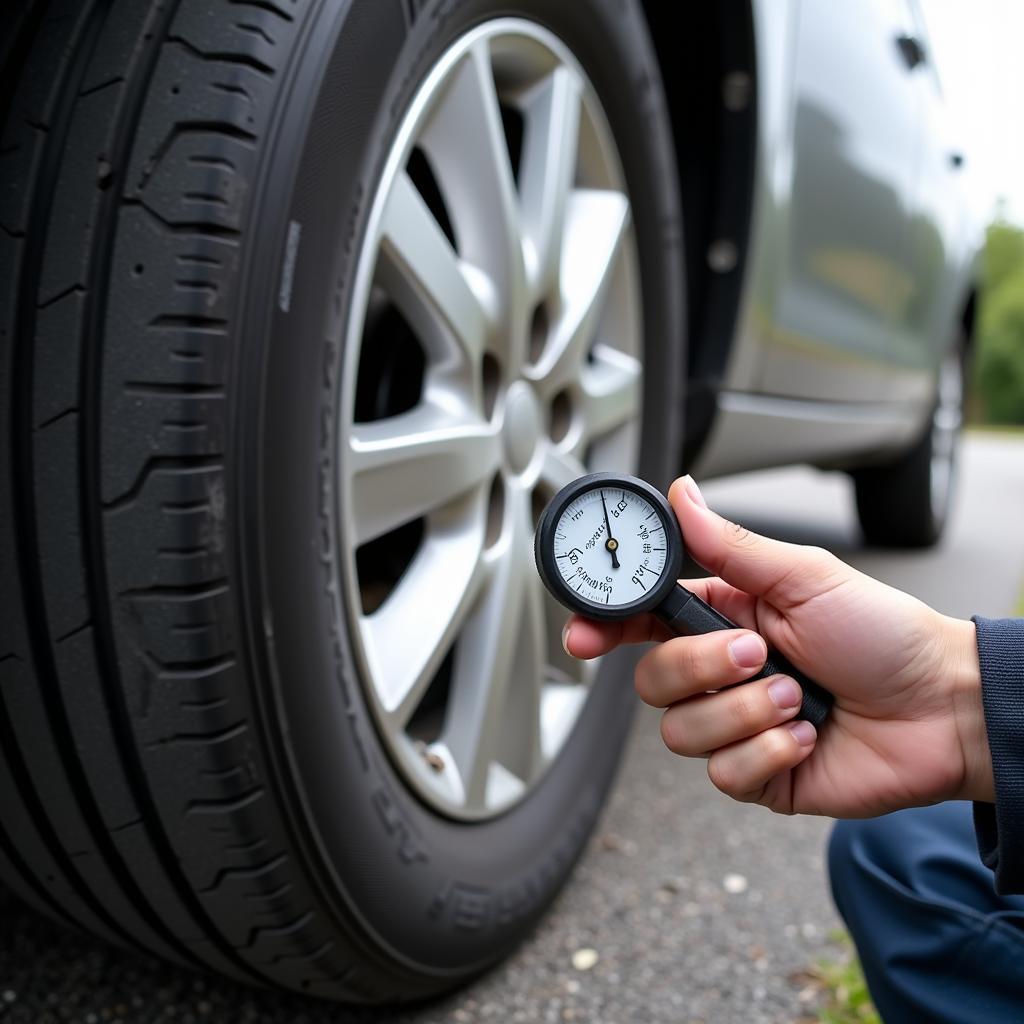Car mechanics are the backbone of the automotive industry, ensuring our vehicles run smoothly and safely. Understanding their role, the skills they possess, and how to find a reputable mechanic is crucial for every car owner. This guide will delve into the world of car mechanics, exploring everything from their daily tasks to the future of the profession.
What Do Car Mechanics Do?
Car mechanics diagnose and repair mechanical and electrical problems in vehicles. Their work ranges from routine maintenance like oil changes and tire rotations to complex repairs involving engine overhauls and transmission replacements. A skilled car mechanic possesses a deep understanding of automotive systems, including engines, brakes, steering, suspension, and electrical components. They use specialized tools and diagnostic equipment to identify issues and implement effective solutions. Here’s a glimpse into some of their typical responsibilities:
- Inspecting vehicle systems and components
- Performing diagnostic tests using computerized equipment
- Repairing or replacing faulty parts
- Conducting routine maintenance services
- Advising customers on necessary repairs and maintenance
Beyond these core tasks, today’s car mechanics are also increasingly involved in working with advanced driver-assistance systems (ADAS) and other sophisticated technologies. This requires continuous learning and adaptation to the ever-evolving automotive landscape. Need a mobile mechanic? Check out car mobile mechanic.
Finding the Right Car Mechanic: Qualities to Look For
Finding a reliable car mechanic can be a daunting task. How do you know who to trust with your vehicle and hard-earned money? Look for these key qualities:
- Certification and Experience: ASE certification indicates a high level of competence. Experience, especially with your specific make and model, is also valuable.
- Reputation: Online reviews and word-of-mouth referrals can provide insights into a mechanic’s reliability and customer service.
- Transparent Communication: A good mechanic will clearly explain the problem, the repair process, and the associated costs.
- Up-to-Date Equipment: Modern vehicles require sophisticated diagnostic equipment. Ensure your chosen mechanic has the necessary tools.
- Warranty: A reputable mechanic will stand behind their work with a warranty on parts and labor.
If you are a club car owner, searching for “club car mechanics near me” is a good starting point. You can find specialized mechanics who are familiar with the nuances of these vehicles. Check out club car mechanics near me.
 Car Mechanic Diagnosing Engine Problem Using Diagnostic Scanner
Car Mechanic Diagnosing Engine Problem Using Diagnostic Scanner
The Future of Car Mechanics: Embracing Technology
The automotive industry is undergoing rapid transformation, driven by advancements in electric vehicles (EVs), autonomous driving, and connected car technologies. This evolution is significantly impacting the role of car mechanics. While traditional mechanical skills remain essential, the future car mechanic will also need expertise in:
- Electronics and Software: Diagnosing and repairing complex electronic systems and software-controlled components will become increasingly important.
- Data Analysis: Interpreting data from vehicle sensors and diagnostic tools will be crucial for identifying and resolving issues.
- Cybersecurity: As vehicles become more connected, protecting them from cyber threats will be a key concern.
 Car Mechanic Working on Electric Vehicle Powertrain
Car Mechanic Working on Electric Vehicle Powertrain
Understanding and embracing these technological advancements will be crucial for car mechanics to remain relevant and thrive in the future of the automotive industry. Need to learn more about car engine parts? Visit car engine parts.
What qualifications do car mechanics need?
Formal training through vocational schools or apprenticeships is common. These programs teach aspiring mechanics the fundamentals of automotive technology, including engine repair, brake systems, electrical systems, and diagnostics. While not always required, certifications, such as those offered by the National Institute for Automotive Service Excellence (ASE), can enhance a mechanic’s credibility and demonstrate a commitment to professional development.
How much do car mechanics earn?
Salaries can vary based on experience, location, and specialization. Entry-level mechanics typically earn less than experienced master technicians. Specialized skills in areas like EV repair or ADAS can command higher salaries due to increasing demand.
How to Maintain Your Car Between Mechanic Visits
Regular maintenance is crucial to prolong the life of your car and prevent costly repairs. Simple tasks like checking your oil level, tire pressure, and coolant levels can go a long way in keeping your car in top condition. Are you looking for some self care tips? Check out self care tips.
 Person Checking Car Tire Pressure
Person Checking Car Tire Pressure
Conclusion
Car mechanics play a vital role in keeping our vehicles running smoothly and safely. From routine maintenance to complex repairs, their skills and expertise are essential for the automotive industry. As technology continues to transform the automotive landscape, car mechanics must adapt and embrace new skills to remain relevant. Finding a trustworthy and skilled car mechanic is crucial for every car owner. By understanding the qualities to look for and staying informed about the evolving automotive industry, you can ensure your vehicle receives the best possible care.
FAQ
- What is the difference between a mechanic and a technician? The terms are often used interchangeably, but “technician” generally implies a higher level of training and specialization, particularly in electronics and computer systems.
- How often should I get my car serviced? Refer to your owner’s manual for recommended service intervals. Generally, oil changes should be performed every 3,000-5,000 miles, and other routine maintenance should be done annually or as needed.
- How can I find a reputable mechanic near me? Ask for recommendations from friends and family, check online reviews, and look for ASE-certified mechanics.
- What should I do if I’m not happy with the service I received? Communicate your concerns to the mechanic or shop manager. If the issue isn’t resolved, you can file a complaint with the Better Business Bureau.
- What is preventive maintenance? Preventive maintenance involves regular inspections and servicing to identify and address potential problems before they become major repairs.
- What are some common car problems? Common issues include worn brakes, failing spark plugs, faulty sensors, and fluid leaks. Regular maintenance can help prevent many of these problems.
- What are some signs that my car needs immediate attention? Warning lights on the dashboard, unusual noises, strange smells, and changes in performance are all signs that you should take your car to a mechanic right away.
You can find more information on car issues on our website. Have a look at car gueus for further reading.
When you need assistance, please contact us via WhatsApp: +1(641)206-8880, Email: [email protected] or visit us at 276 Reock St, City of Orange, NJ 07050, United States. We have a 24/7 customer service team.


